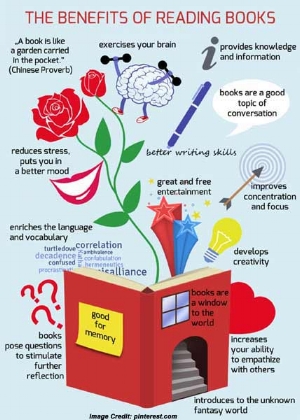At certain times of year, we might have a bit more time to sit down with a good book. World Book Day (7 March 2024) is one such time, a day to celebrate authors, illustrators, books and the joy of reading.
World Book Day also encourages young children to dress up as fictional characters, which may also turn out to be potentially good for mental health. Whatever time of year, is reading good for mental wellness?
There are many times of year we might want to curl up with a favourite novel, maybe by the fireside over the festive season when work winds down, on a beach during the summer when we’ve time to ourselves or on the morning commute when a book may seem friendlier than the eye contact of those around you.
But just like a smile to a stranger, can reading be helpful to improve mental health?
Fact: Fiction Can Be Good For Mental Health
Reading fiction can have a positive impact on measures of mood and emotion, but it’s important to note that exposure to fiction does not, on its own, have an immediate impact on well-being. To mentally benefit from reading fiction, it’s ideal to be able to engage with the story itself and the journey the characters may go on.
Imagination is stimulated by reading, which in turn may well help us socially. Being able to understand other people, places and mental states can help us build stronger connections. Neuroscience shows reading and social cognition both recruit the same part of the brain and brain functions which can develop by being stimulated when reading fiction.
Moreover, understanding what other people go through is a vital life skill. It can help us in relationships, friendships, at work, as parents and globally or politically. This skill is known in the science world as ‘Theory of Mind’. Reading literary fiction temporarily enhances this skill.
Excitingly, this suggests that the crucial skill of ‘Theory of Mind’ could be encouraged by and therefore may flourish if we engage with any art whether it’s literature, theatre, visual art, comedy or something else.
Find out why creativity is good for mental health in our article by clicking this link. And find our why comedy is good for mental health by following this link.
Book Some Time To Read
Books have themselves been written about the science behind why reading is good for mental health.
So could reading be considered as a treatment for mental health conditions? The answer is, it already is! Reading prescriptions have been explored as a part of treating mental illness, with interesting results. Health professionals loved the ‘healthy reading’ scheme, it provides a useful treatment for mental health problems and was well-used by library members without diagnosed mental health problems.
Having said that, one particular genre is a little contentious and that is self-help. Self-help books have been debated as a tool in mental well-being, particularly for those with preexisting mental health conditions. Many people with depression engage with self help to positive outcomes on a par with medication or talk therapy. But many scholars are concerned about the quality of the publications in this genre since there’s not much policing of what counts as ‘self-help’ nor who writes or publishes.
Time To Reconsider Screen Time
Many of us nowadays read books on screens, whether that be our phones, tablets, laptops or kindles. So how does that screen time affect our mental health?
Although there are associations between lower psychological well-being and use of screen time, this is particularly prevalent amongst young people and the reasons are not yet well-known.
Specifically, depression is common amongst girls who read a lot of posts on social media and lower levels of mental well-being overall is frequent for adolescents.
In fact, excessive screen time can increase the risk of cognitive, behavioral, and emotional disorders in adolescents and young adults that also has the potential to increase the risk of early onset dementia in late adulthood.
Further research is most definitely needed to fully understand why screen time affects mental well-being, which is partly why MQ are supporting a new report due to be published in summer 2024 into the internet and mental health.
Graphic Novels can be Comically Good for Mental Health
An honourable mention should go to reading a of a totally different genre, and that is comic books or graphic novels. Not all of us enjoy reading lengthy tombs or have the time and some of us prefer visual art of storytelling. Perhaps years ago, some people might have prejudices about reading graphic novels, but there’s a lot of good to come of it.
Although, a lot could be said about the representation of the mental health of villains in comics, which can be questionable, a lot of comic book characters can be great tools to greater understanding of mental health conditions.
As far back as the mid-1950s, comic books were used as a way to educate and entertain regarding mental health understanding. One comic entitled Psychoanalysis even attempted to teach the general public about the powerful transformations that can come from mental health treatment.
In addition, comics can be helpful in therapeutic settings. And reading comics seems to positively affect how comfortable people feel about using them for teaching or learning despite whether those people previously read comics regularly or not. Excitingly, within mental health and social care, comics could be incredibly useful when used in medical or therapeutic settings for young people.
So whether it’s reading books, comics or even reading through Instagram, almost any form of reading may have a positive effect on mental wellness.
Find out about how creativity can improve mental well-being and reduce stress.







